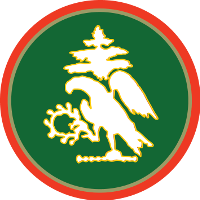An increasing number of universities and research organisations are starting to build research data repositories to allow permanent access in a trustworthy environment to data sets resulting from research at their institutions. Due to varying disciplinary requirements, the landscape of research data repositories is very heterogeneous. This makes it difficult for researchers, funding bodies, publishers, and scholarly institutions to select an appropriate repository for storage of research data or to search for data.
The re3data.org registry allows the easy identification of appropriate research data repositories, both for data producers and users. The registry covers research data repositories from all academic disciplines. Information icons display the principal attributes of a repository, allowing users to identify the functionalities and qualities of a data repository. These attributes can be used for multi-faceted searches, for instance to find a repository for geoscience data using a Creative Commons licence.
By April 2013, 338 research data repositories were indexed in re3data.org. 171 of these are described by a comprehensive vocabulary, which was developed by involving the data repository community ().
The re3data.org search at can be found at:
The information icons are explained at:
Repository operators can suggest their infrastructures to be listed in re3data.org via a simple application form: The re3data.org team reviews and then lists the proposed repositories in the registry. A repository is indexed when the minimum requirements are met, i.e. mode of access to the data and repository, as well as the terms of use must be clearly explained on the repository pages.
re3data.org is funded by the German Research Foundation (DFG). Project partners in re3data.org are the Library and Information Services (LIS) of the GFZ German Research Centre for Geosciences, the Berlin School of Library and Information Science at the Humboldt-Universität zu Berlin and the KIT Library at the Karlsruhe Institute of Technology (KIT). re3data.org cooperates with the German Initiative for Network Information (DINI). The three partners with their expertise in information infrastructures guarantee the sustainability of the registry in the future.
Detailed information can be found in the following PeerJ preprint:
[]












